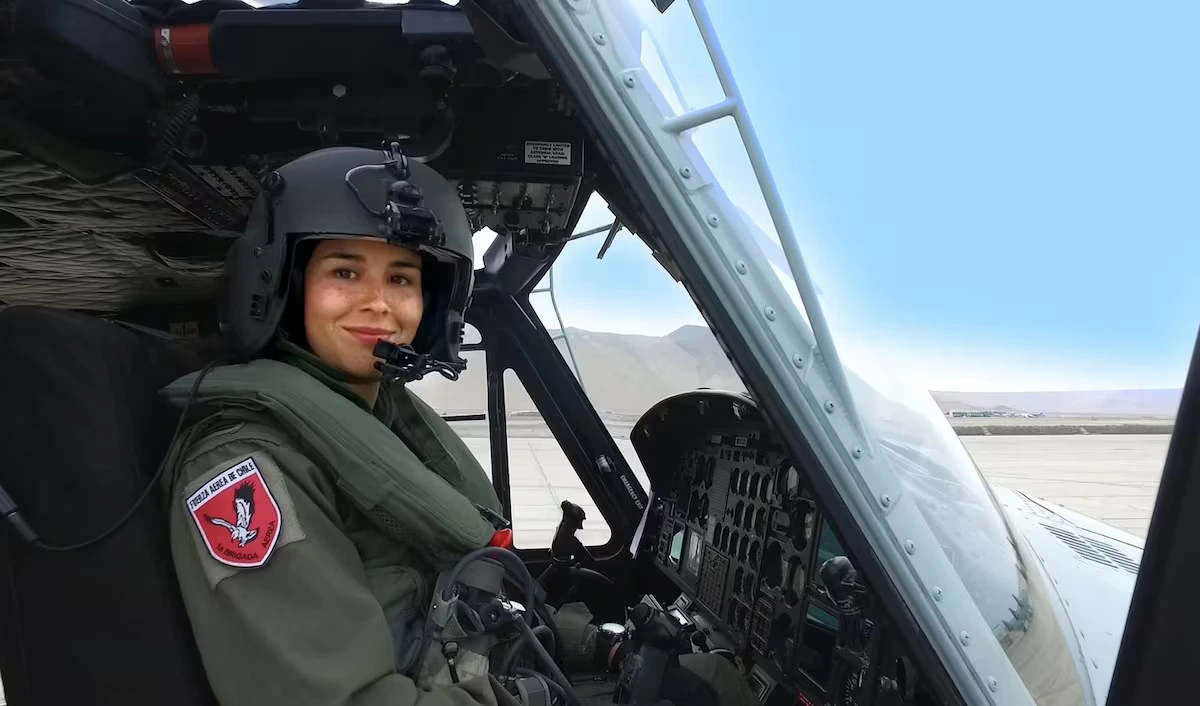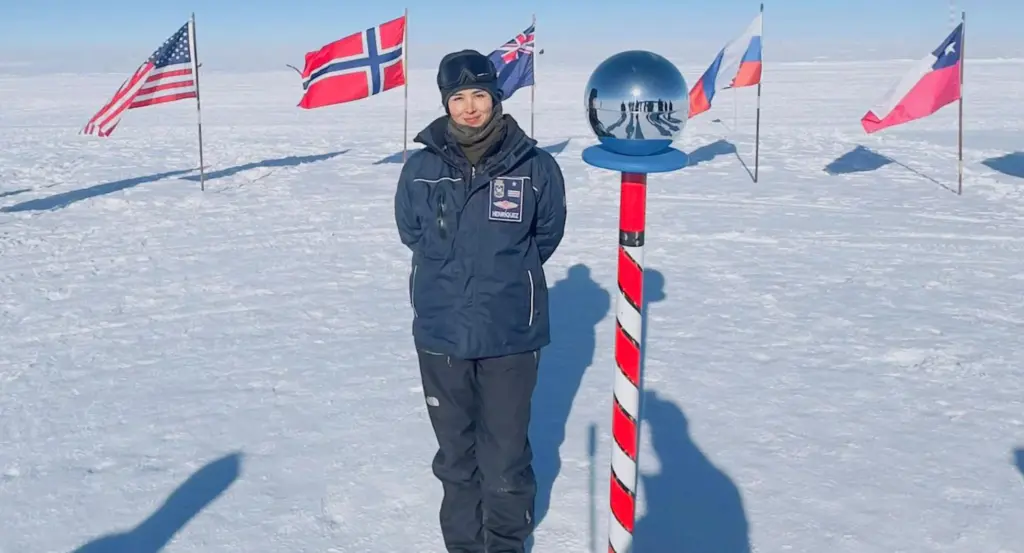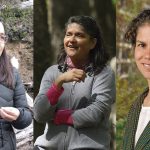
It is not only the cold, which can reach -30 degrees Celsius and numbs the feet and hands inside the helicopter. It is also the wind that blows as it only does at the end of the world. It is the white color that never ends and makes it difficult to calculate precisely at what altitude you are flying. It is the lack of trees that give a clue about the geography of the place. It is all of that, all of that together, that makes that few pilots have managed to land at the South Pole.
Natalia Henríquez (36 years old, Santiago de Chile), captain of flock (A) of the Chilean Air Force (FACH), made it and on January 3 became the first woman pilot of the South American country to land in the southernmost area of the white continent. She did so as part of the Polar Star III mission, headed by President Gabriel Boric and aimed at reinforcing scientific research at the South Pole, a trip that has been catalogued as a diplomatic milestone.
The journey began when the group arrived in Antarctica and two MH-60M Black Hawk helicopters, one of them commanded by Natalia Henríquez, flew over the 1,129 kilometers that separate Glaciar Unión, a Chilean scientific base, from the South Pole. Upon arrival, the pilot was overcome by a mixture of emotions. "I felt pride, happiness and satisfaction. When I landed and the snow rose up around me, I thought: 'This is something that I will probably repeat again in my lifetime,' so I enjoyed every second of it," she says by phone from the white continent.
A historic achievement: Landing at the South Pole
The flight lasted six hours and was only the end of a journey for which Henríquez prepared for a year. It was a trip that Boric made together with the Ministers of Defense and Environment, Maya Fernández and Maisa Rojas, and the commanders-in-chief of the FACH, the Army and the Chilean Navy.
The challenge of flying to the end of the world
For the pilots, however, the trip lasted much longer than those six hours. A month earlier, on December 2, the helicopters left Santiago for Glaciar Unión to wait there for the presidential retinue and then set off for the South Pole. It took 40 hours with several landings in different parts of Chile. Henríquez says it is an exhausting route. "Unlike commercial aircraft, which have a lot of flight time autonomy and can make longer trips, we have to make 'sapitos', that is, we stop everywhere," he explains.

Preparation and training
For the mission, the pilots trained for 12 months. In addition to organizing logistical and operational details, they exercised in the field. "We had a survival campaign in the snow, where we learned to make shelters and move in ropes, an instruction given to us by the Army at the Mountain School. In addition, we practiced long-haul flights, which lasted more than seven hours. We also had training in Campo de Hielo Sur, where we took the aircraft to operate in icy and snowy conditions", says Hernández.
Despite all that training during 2024, which kept her busy in body and mind, Natalia Henríquez did not feel exhausted when she reached the South Pole. On the contrary: "Because of all the adrenaline, because of all the excitement, I didn't feel tired at that moment, it came days later. But I was proud, happy. It is a professional achievement that I never imagined I would have," says the pilot who joined the FACH in 2007, at the age of 18.
Her vocation for flying was nested when she was 12 years old. "It all started when I was very young and played Atari. There was a game about helicopters and I had to rescue people. I found it exciting and I imagined that I was the pilot rescuing people and I could help them," she recalls.
Twenty-four years have passed since those childhood dreams and today, after 16 years in the FACH, she looks back with satisfaction at the achievement of being the first pilot from the South American country to land at the South Pole. "I feel it is an honor to have achieved something that no other Chilean womenhad done before," she says. But she also warns: "I love that we women are getting better and better, that more doors are opening for us to places where space was not available before. But I would also like the time to come when it is no longer news that a woman did something because it had not been done before".
And she adds, from Antarctica: "In the near future, we women will have done so many things that there will no longer be areas left to be the first in something, but there will be other challenges".
Read the original article on the website of El País






